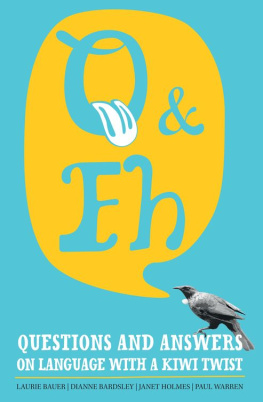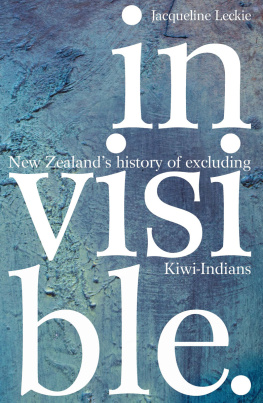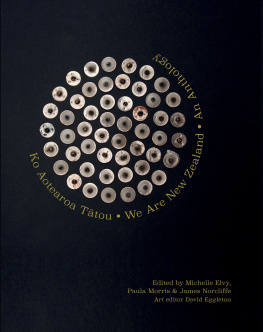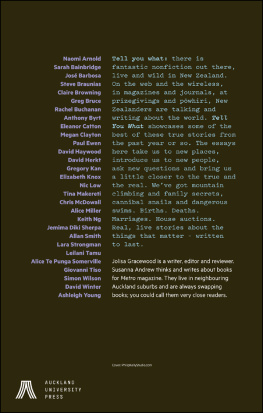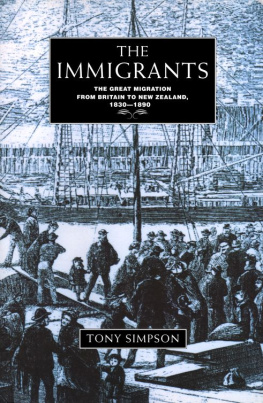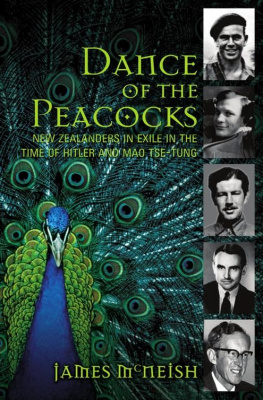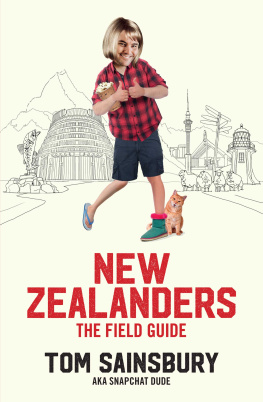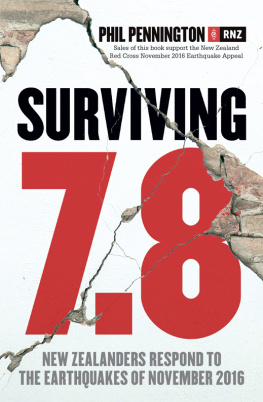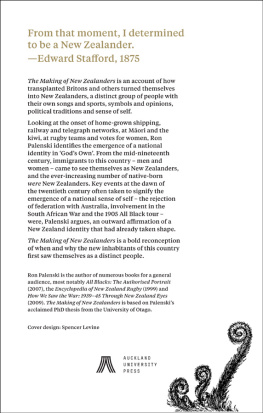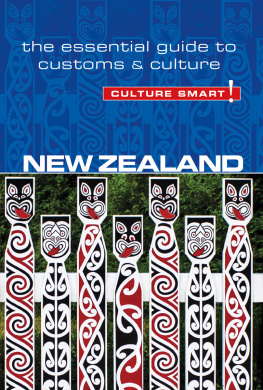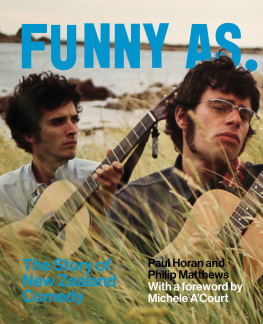Page List
First published 2020
Exisle Publishing Pty Ltd
226 High Street, Dunedin, 9016, New Zealand
PO Box 864, Chatswood, NSW 2057, Australia
www.exislepublishing.com
Copyright 2020 in text: Pete Carter
Pete Carter asserts the moral right to be identified as the author of this work.
All rights reserved. Except for short extracts for the purpose of review, no part of this book may be reproduced, stored in a retrieval system or transmitted in any form or by any means, whether electronic, mechanical, photocopying, recording or otherwise, without prior written permission from the publisher.
A CiP record for this book is available from the National Library of New Zealand.
Print ISBN 978-1-77559-433-8
ePub ISBN 978-1-77559-454-3
Design and typesetting by Nick Turzynski of redinc. book design
All photographs by Pete Carter, with the exception of those listed below:
Supplied by the interviewee: (Lulu).
Courtesy of Gareth St John Thomas: (Tim).
Courtesy of Kelly Belle Photography: (Sonja)
Courtesy of Chris Moller: (Evie)
Courtesy of J.M. Henderson: (Pete)
Note
Each interview was recorded and then edited by the author to produce a coherent story that retained the interviewees own voice.
For all the New Zealanders who were in my life before I moved here. Especially my wife, Jacqueline Henderson.
Introduction
By the time this book is published in 2020 the New Zealand population is likely to have surpassed 5 million. Given the size of the country on global terms, that is not a lot.
Over the six months that I wrote this book I interviewed more than 200 inhabitants and have tried to tell part of their story in just a few words. Of course, thats an impossible task. One interviewee was 101 at the time of interview how can you sum up a life at two words per year?
The random nature of how I selected the subjects means there is no science to what appears in this book. Some interviewees I approached in the street, some I approached more formally, some were introduced by friends and some are friends or were, before they saw the finished article. Some, at the time of interview, live overseas as part of the huge New Zealand diaspora.
The book title is a play on the words of Prime Minister Jacinda Ardern. After the awful Christchurch terrorist attack, Ms Ardern said of the victims, They are us. My publisher thought about that and decided that there was a wider story to be told, commissioning me to conduct the interviews and photograph the subjects. This, then, is a response to Christchurch but not about it.
I very rarely asked a direct question about the attacks. If I had, I would have almost certainly received 200 or so variations of the same answer.
Instead, this is a wider look at the country. Its not all about new migrants. One of the Hawkes Bay interviewees can trace his whakapapa right back on his fathers side to the waka Tkitimus arrival. His mothers side is Samoan, but his maternal grandfather was from the English county of Kent.
On the Pkeh side, some can trace their lineage back generations in this country to those first ships, others have arrived in the last few years. One interviewee was born in South Africa to Indian parents. She arrived when she was two. Im Kiwi through and through, she told me, I know nothing else. A former cabinet minister talked about how her Samoan forebears had Jewish ancestry. One of the younger interviewees has a Mori name but Italian and Brazilian parents.
I took heart from a young Muslim arriving and finding comfort in the welcome he received at a high school marae. This can be countered though with another African immigrant having things thrown at her in the street. An Iraqis first memory was white toast. An American migrant reflected that the country has been good to him and he for it.
Immigration is often seen as a city phenomenon. Not in this country. I met Filipino dairy workers, a Thai viticultural business owner, an Argentinian packing shed manager, a South African hospitality worker in a ski resort. As is usual, immigrants fill the gaps.
Along the way I interviewed politicians, farmers, teachers, a tattooist, a road-sweeper, students, a builder, an electrician, a barber, a hairdresser and a GP. I also interviewed retailers, artists, business people, a novelist, a fisherman, a restaurateur, a vet nurse, a stopgo worker and a hygienist. All people that make a place what it is.
On the whole, I see it as an encouraging survey of sorts. Most experiences and stories are positive. Of course there are issues still to be addressed. Racism still undoubtedly exists in this country. Mental health is a problem. There are haves and too many have nots. New Zealand is a distant island nation, but, as per the books premise, it is clearly not immune from what goes on in the world.
Im a migrant myself, having moved here 22 years ago with a New Zealand-born wife and a five year old and a two year old. The latter are of course very much Kiwis now. I love this country, but accept that there are issues that must be addressed.
Another strand for me in preparing this book was that the subjects liked to be listened to. On the whole they enjoyed telling their story. Maybe people are not listened to as much as they once were. Some stories were difficult to tell and therefore difficult to hear. I was turned down on occasion, but once the interviews started the recording device was quickly forgotten. It was me that often had to put a stop to the interviews, but only because I already had too much information for the words that were to be allotted.
In the end, though I just cant get over the sage words of the nineteen-year-old interviewee who told me that being a good Kiwi was about eating your greens and doing the dishes. He said that if everyone did that, the world would be a better place. Who can argue with that?
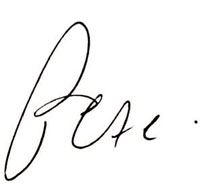
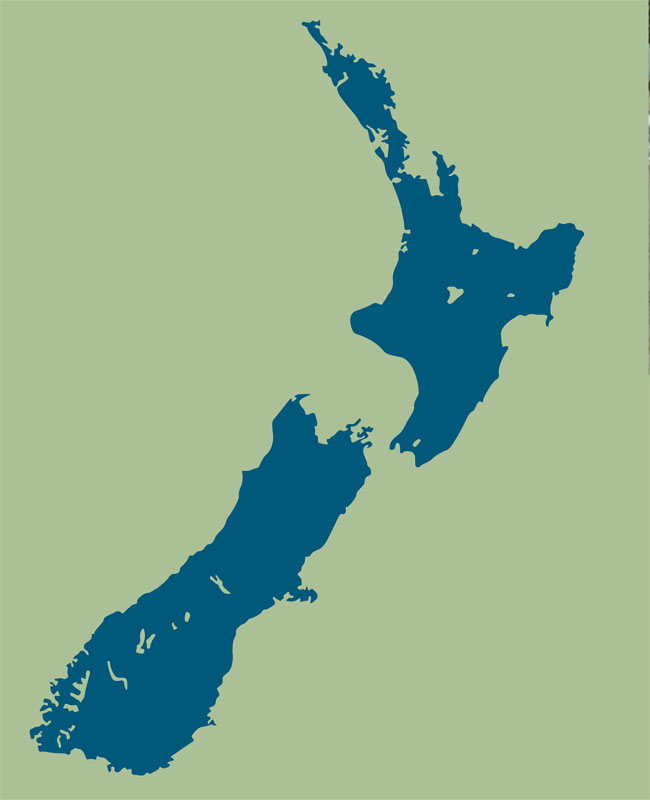
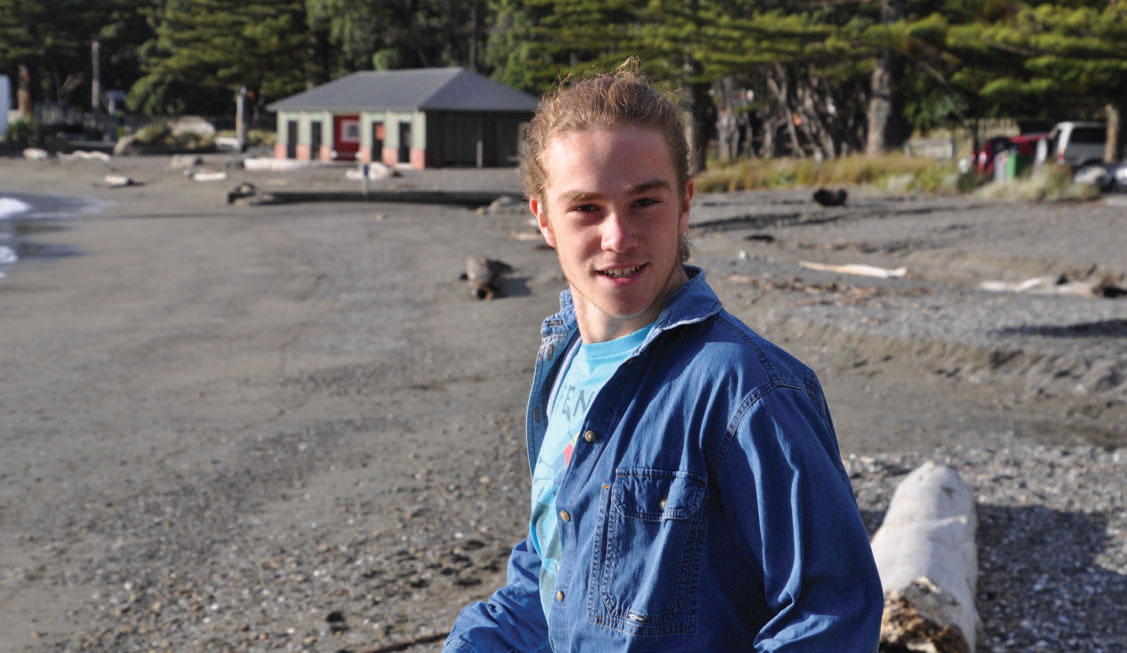
Im a Kiwi through and through. I love seeing the All Blacks win. Being a Kiwi for me is eating your greens and doing the dishes. If everyone did that, the world would be a better place. |
Gus
I was born in 2000. Im Dads only child but have two half siblings through Mum. It was just Mum, Dad and me and a cat. I never lived with my siblings.
I was four when I got my first guitar. Id just strum until I got blisters. I was captivated. I didnt know what I was doing. I got an electric guitar when I was ten, a full-size one. That was awesome. I still remember the feeling. At my first gig I played in front of a thousand people. I was ten. I felt in control and I loved it. I had no technique and ruined my voice box.
Ninety per cent of the time I play for myself practising and running through chords, in my bedroom, with my headphones on. My parents have been really supportive. Im studying music at university but Im a country boy at heart. My dream is to sell out Wembley. I want to make a living doing what I love.


